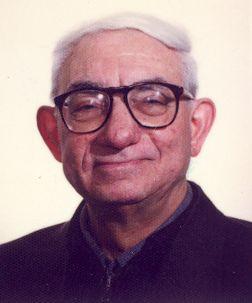Daniel Comboni
Comboni Missionaries
Institutional area
Other links
Newsletter
In Pace Christi
Bonfitto Michele
I knew Fr. Michele Bonfitto when I was in the Liceo at Carraia. Being choirmaster and interested in music, I met him a number of times and worked with him.
After completing theology in Italy, he was appointed to England where, for a period of time he was vice-rector of the minor seminary. The then Fr. General, Fr. Todesco, allowed him to do further musical studies. He took a diploma in the pianoforte, the organ, choral singing, Gregorian Chant, composition and choral and orchestral conducting. He did some course in London and others, such as musical composition, at Durham. He received second prize for composing a hymn in honour of the Queen in a choral competition at the Royal Albert Hall in London. The Queen presented him with a choir conductor’s baton which he greatly prized. Unfortunately, during choir practice, Fr. Bonfitto broke the baton much to his displeasure and causing him to shed a tear or two.
He composed various Masses and motets in Latin with modern harmonies that were quite popular and an oratorio on Comboni entitled Alba di Gloria for choir, soloists and orchestra. Outstanding mong his Masses is the popular Missa Martyrum that he composed in England and which we performed as boys on the occasion of the ordination to the priesthood of a large group of Combonis at the Votive Temple of Verona at which Cardinal Agagianian presided. If I remember correctly, that was in 1964.
Fr. Bonfitto composed a Mass in Latin for voices and organ on the occasion of the Second Vatican Council. His two famous post-conciliar Masses sung in many parishes throughout Italy were the Messa dei Fedeli and the Mass Sei Grande nell’Amore, with interesting rhythmic hymns, some of which were arranged by Bonfitto while others were originals, composed by him. He composed harmonies con gusto and creatively, avoiding the banal and what was too obvious. He had a deep sense of liturgical music. In conducting a choir he was nothing short of magical.
Fr. Michele was not an easy character and he would become annoyed if he thought people had little regard of him. He was depressed at times. Some of us Liceo students had at times to encourage him to bring him back to normal. He would sometimes “mythologise” himself as a musician as, for example, he told us how, during a very cold winter in England, while he warmed himself at a stove, he fell asleep only to awake to see the last pages of the manuscript of a the new composition of his for choir and orchestra he had just completed go up in smoke. I had read of another composer who had had the same experience. He once told me he kept some of his compositions at the studio of a brother of his, a lawyer living in Florence. That music would be released when the time was right.
In conclusion, Fr. Bonfitto was a man of great musical gifts that he was able to place at the service of the liturgy and of the Church. I admire in him his ability to adapt to modern times so as to be musically relevant also to the youth. Even though his musical training was classical, he was ready to assume a style that was more rhythmic and with the modern accompaniment of guitars, base and percussion instruments. Much of what I have learned of music and choral composition I owe to him.
(Fr. Guido Oliana).
Da Mccj Bulletin n. 274 suppl. In Memoriam, gennaio 2018, p. 126-129.

